
A lovely, bright celebration from Jenny Cobb. Made with upcycled materials, too. Many, many thanks!

by RXY

A lovely, bright celebration from Jenny Cobb. Made with upcycled materials, too. Many, many thanks!

by RXY
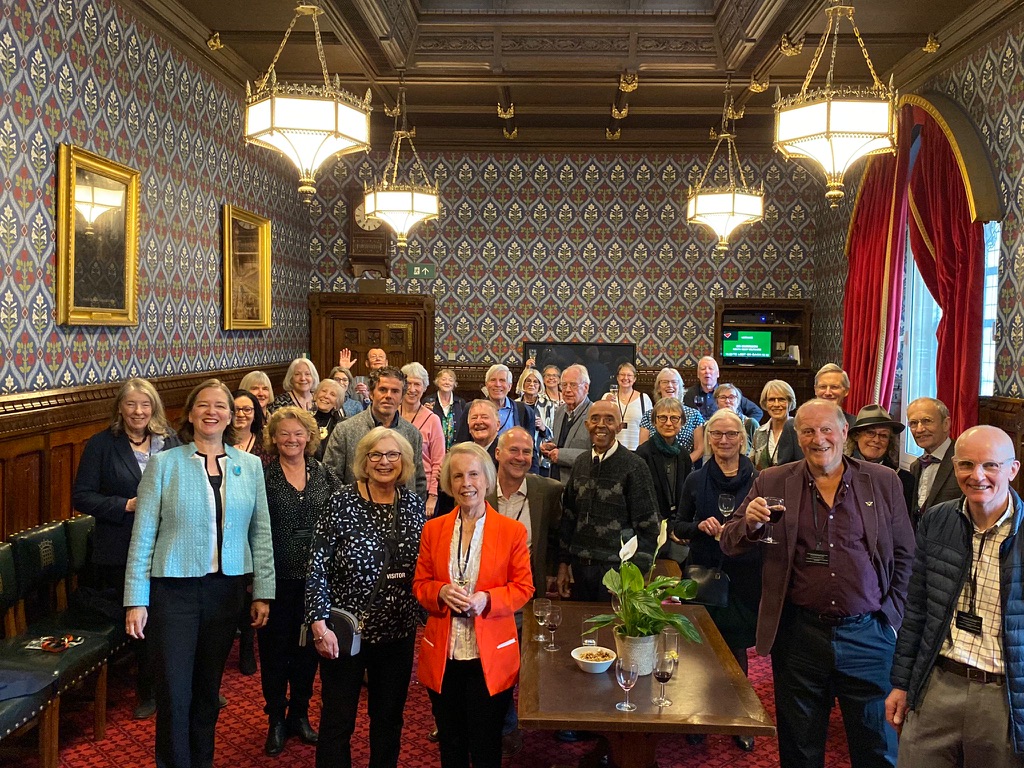
At our AGM last November when Fleur Anderson heard this year would be the RGS’s centenary year, she invited us to have an event at the House of Commons Jubilee Room as part of our centenary celebrations. Numbers had to be very restricted, so only members who have made a contribution to the running of RGS activities were invited. All costs were covered by those who attended the event.
It was a very special evening to remember in such an auspicious place. Fleur made it clear in her speech that she is very committed to preserving and supporting allotments and that environmental issues in general are very important to her. We are very fortunate to have Fleur as our President and MP who is so passionate about these important issues that are so in line with the values of RGS.
Fleur and her team made the evening run very smoothly and were very supportive in organising the event at our end too. The event was very enjoyable as a result – many thanks to Fleur and her team.
Helen Finch
by RXY
Notes from the Easter Sunday Plant Sale
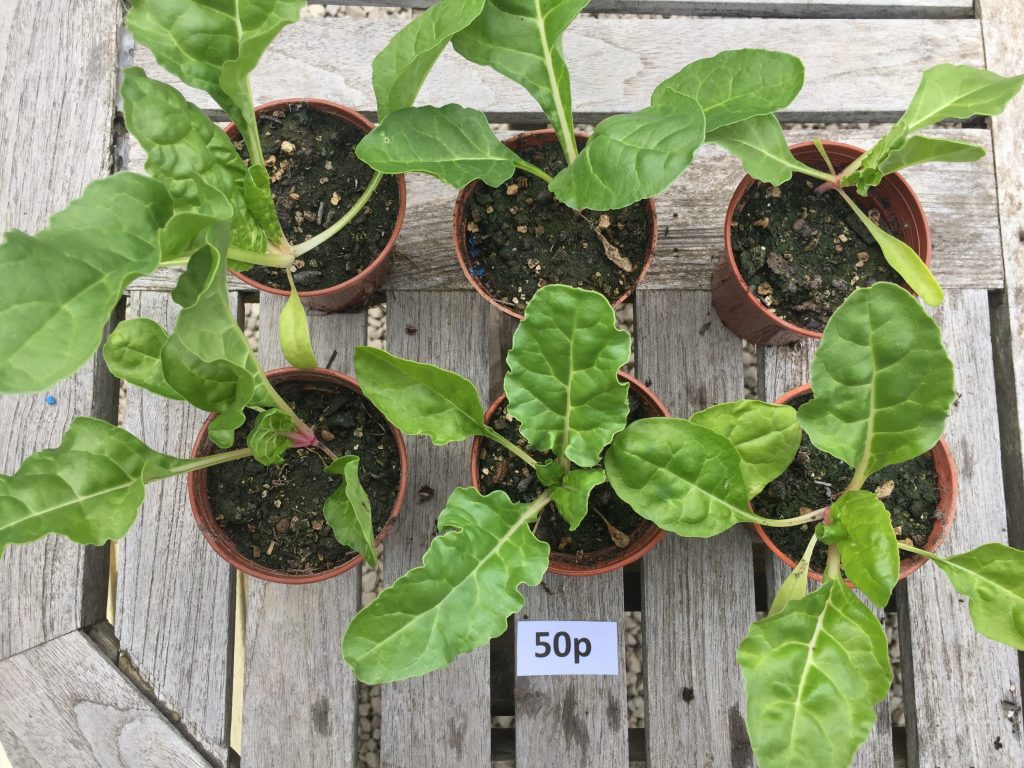
On Site 2, Easter Sunday 17 April, we held a very successful Plant Sale in aid of Glass Door, a charity that partners with churches and community centres to give shelter and support for homeless people. Our local church, St Margaret’s actively supports this charity.
It was a lovely sunny day and the sale tables, filled with produce, looked very inviting under gazebos and bunting. Virtually everything was sold on the day, with the few remaining plants being sold on the following Sunday. We made just over £200, all of which goes to Glass Door.
Thanks go to Sue Hodgson, Carol Martinez, Gill Tamsett and Sylvie Willcox who helped on the Sunday, and to all those who donated plants without which the sale would not have been possible.
Vivien Fowler
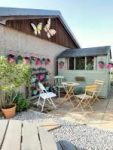
by RXY
A lovely stylish place to meet and enjoy a hot drink – and ideal if it rains! Annie Hardinge and her team have worked hard to make site 2 the place to be. Almost complete, behind the store -so do go and see…
Many, many thanks to Annie and her team: Hannah, Charles, Simon, Trish, Vivian and Greg for all their hard work.
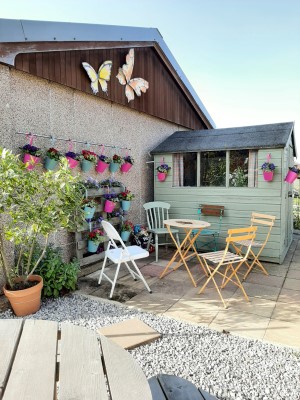
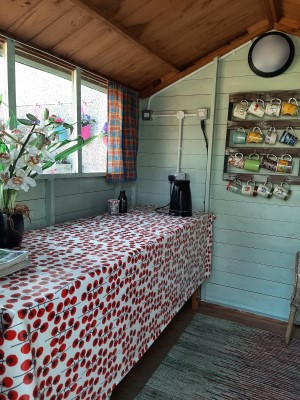
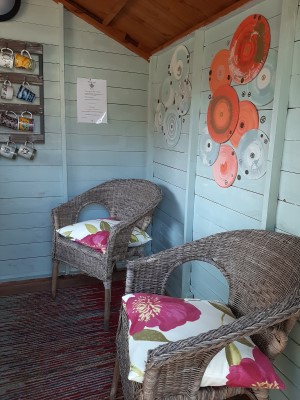
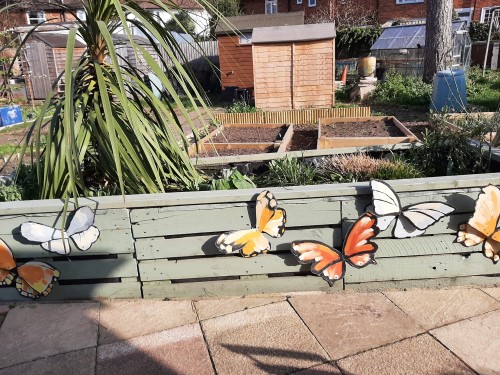

by RXY
In order to make our lovely allotments accessible to children in our area who do not have families with plots or have a garden at home, we often welcome small groups from local schools to visit. Only one school, Paddock, rents a plot but there are visiting groups from other schools. Not only do the children learn about the seasons, the plants and the bugs but sometimes they get a real treat with a difference! Courtney,a pupil at Granard School, wrote:
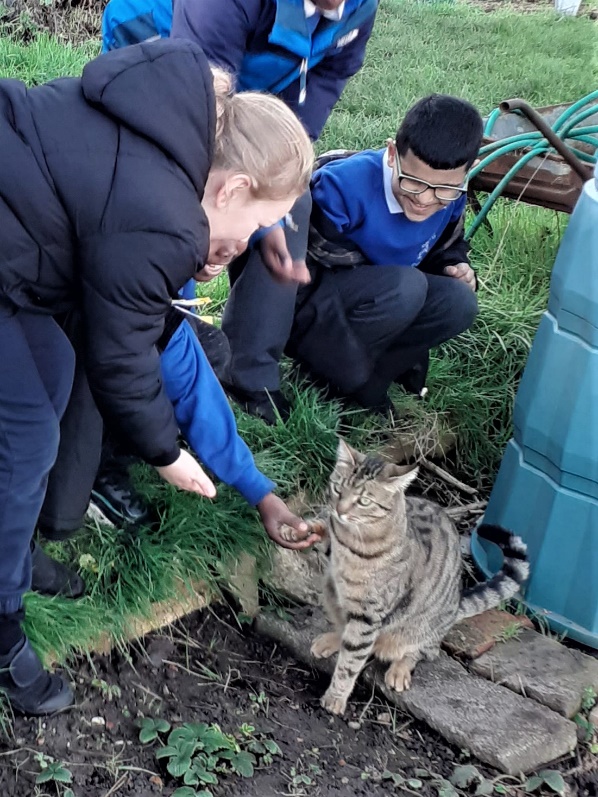
“On Mondays, we go to the allotments to see all the plants. This week we saw two dogs called Barley and Hugo and a cool cat called Simba. The dogs were cute and friendly to everyone.
When Hugo saw us, he got very excited and started to jump and run around like a raccoon.
Simba the cat is three years old. When Simba saw Barley, he wanted to hunt, but instead he jumped up in the tree. Simba loves going on trips by himself. When he was young, he would squeeze under the gate to reach the allotments. However, now he can’t go under the gate because he is too big. Simba loves going in the trees to look out for food. If you offer him some delicious treats, he will sit down and give you his paw. I like the way he looks. “
with thanks to Jackie Savage
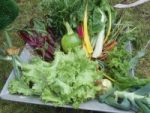
by RXY
EcoLocal, a Carshalton based charity are running their successful short course to help you to grow your own healthy, organic food without harming the environment.
For further information and to book, visit http://www.ecolocal.org.uk/highlight/organic-food-growing-course/
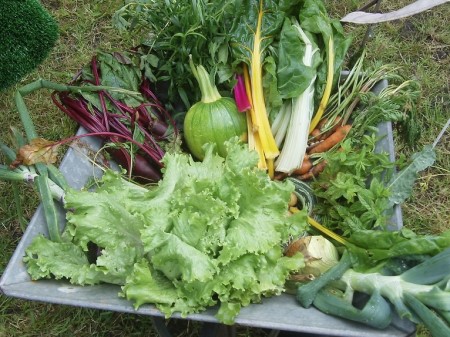
Comments from past students….
“It’s a great mix of practical and theory so the information goes in twice and ensures you’re more likely to remember!”
“Very knowledgeable tutor”.
“I had only just got an allotment so the 6 lessons were exactly in line with what I needed.”
The course teaches eco-friendly gardening; no-dig methods, crop rotation, organic pest control, making natural fertilisers and more. It’s suitable for beginner and intermediate growers. teaching is a mixture of theory and practice, allowing students to try out the skills they learn, understanding how to plan, so they can make the most of their veg patch or allotment.
Running over 6 Saturday mornings, beginning 23rd April 2022.
The course is face to face outdoors for the practical skills teaching elements, taught on the Carshalton Community Allotments, just a 5 minute walk from Carshalton station. The theory is taught live via Zoom on alternate weeks. More travel information
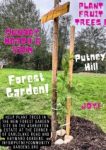
by RXY
Sunday March 6th 10 am
Come and help plant the new Forest Garden – lots of trees and bushes to plant in this exciting project
Saturday March 12th 2pm-4pm
A Crafty Get Together for all
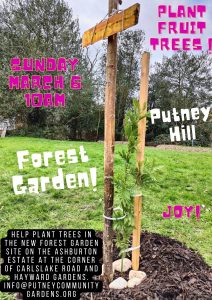


by RXY
Tomato and Potato Blight
Last year many of our outdoor tomatoes were destroyed by tomato blight and some plot holders also had potato blight to contend with. The key with potatoes is not to leave them too long in the ground once they are ready to harvest.
We can also take precautions to minimise the risk. Don’t plant tomatoes or potatoes near each other, they are both solanums and will compete for the same nutrients and suffer the same diseases. And don’t plant them where potatoes and /or tomatoes were last year, if you can avoid it.”
Tomatoes are easy to grow and it is now time to sow some seeds under glass. We have the following blight resistant varieties in Store:
Cocktail Crush, Crokini, Fandango, Mountain Magic (said to be the best disease resistant tomato) and Black Opal.
with thanks to Jackie Savage

by RXY

A lovely Art Exhibition in Putney Library shows the imaginative work of Granard School pupils as they colour and paint their environment….
When you visit – please sign the visitor’s book …..
Exhibition open until 17th March.
by RXY
Wood chip, manure and compost : supply situation
Wood Chip
Currently we have 3 tree surgeons who supply both sites – Hardy Tree Surgeons, Putney Tree Surgeons and Green Industree Ltd. They know we prefer good quality chip without too much leaf, especially leylandii and eucalyptus. As deliveries are infrequent it would be useful if any RGS member knows of, or is using another tree surgeon who may be able to supply us, to contact RGS with their details. Access to both sites is not easy for chipping wagons and any potential supplier needs to be aware of this.
Manure
Despite all efforts we have been unable to find a local stable who will supply and deliver manure. We have had inferior quality manure delivered from other sources in the past but it was not popular. Again, if any RGS member has a contact with a local stable please could they let RGS know.
Manure can be collected free from Ham House stables TW10 7RS (contact Kate Ferguson 07803 015437 before visiting), Wimbledon Village stables and The Willows, Cobham KT11 2SL (contact Micki 07583 860618). There may be others.
Compost
We have recently had deliveries of free good quality compost from Enable who manage Wandsworth’s Parks. We shall continue with this as long as supplies are available.
With thanks to:
Vivien Fowler
by RXY
Rent invoices will be coming soon
Mid February you will be getting an email from RGS with your 2022/23 invoice for rent, water, insurance and RGS membership. It will need to be paid by 31st March 2022 by bank transfer into the RGS account – full instructions will be on the invoice. The rent is set by Wandsworth Council and this year will be:
Full rate £26.20 per rod
Concession and Disabled rate £20.90 per rod.
You are eligible for the concession rate if you are 65 years old or more on 1st April 2022. The
Disabled rate is available for those on disability benefit.
The water charge will remain at £5 per rod and insurance at a flat fee of £1. We are considering a small increase in RGS membership.
Please watch out for the invoice attached to an RGS email in a couple of weeks.
Helen Finch, Chair of RGS
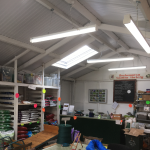
by RXY
The Store re-opens after its Christmas Break on Sunday 9 January
We will have plenty of Country Natural available and seed composts are being delivered next week.
COVID
The Omicron variant is very much with us and thus it is important that visitors to the Store follow COVID procedures. This may mean queuing outside the store, especially when the potatoes and onions arrive.
Hand Gel and masks available in store.
Potatoes and Onions will be available from the Main Store from Sunday 16 January.
We will have 5 varieties of potatoes and 2 of onion sets as follows:
Potatoes are sold by the kilo and you can pick and mix.
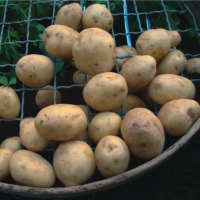
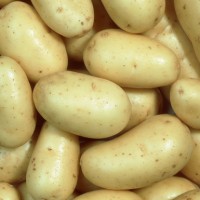
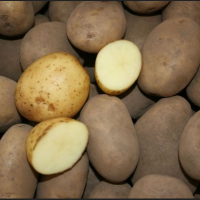
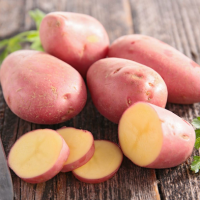
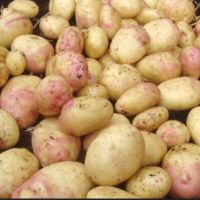
FIRST EARLIES for planting late March/early April and Harvesting in June/July:
Swift: produces lots of small, round potatoes with short plants ideal for growing in containers.
SECOND EARLIES for planting early-mid April for harvesting in July/August:
Charlotte: a salad potato with slightly waxy yellow-cream flesh.
Estima: ideal for boiling and mashing if harvested early. If left in the ground it makes a good baking potato. Large oval tubers with a smooth skin and pale yellow flesh
MAIN CROP for planting in mid-late April and lifted in August for immediate use or in September/October for storing:
Desiree: oval red skinned tubers with pale yellow flesh. Heavy croppers that are tolerant of drought and show a good resistance to disease.
King Edward: has good keeping properties and above average disease resistance. Flesh is creamy-white.
ONION SETS: plant in February to April and lift when they mature in August.
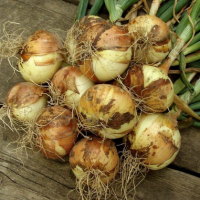
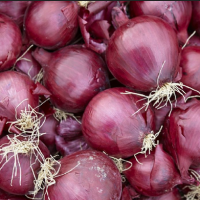
Red Baron: produces flattish-round bulbs of dark red.
Sturon: produces straw-coloured bulbs.
The onion sets come in 200g bags.
Gill Tamsett
Trading Secretary